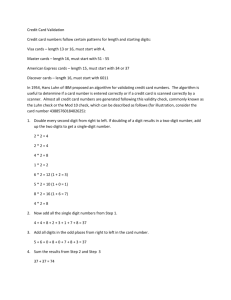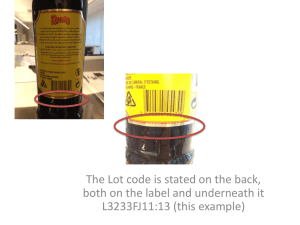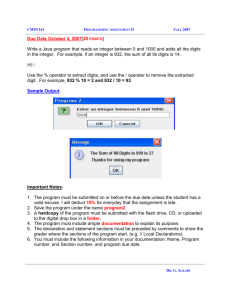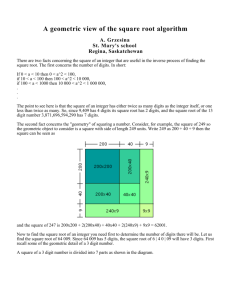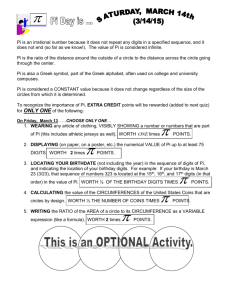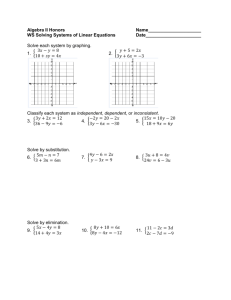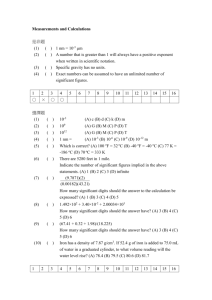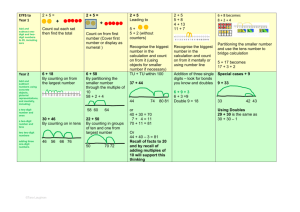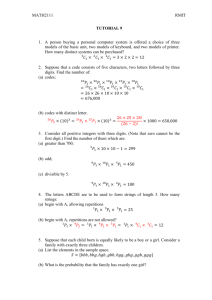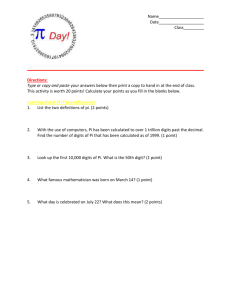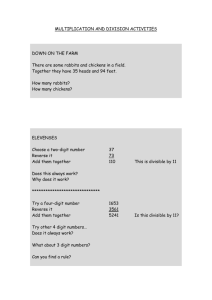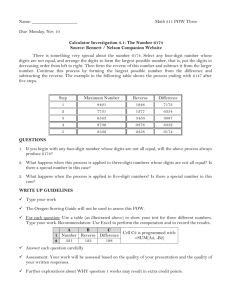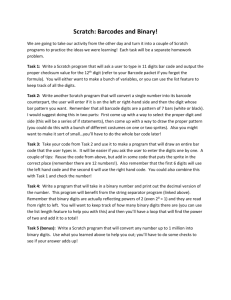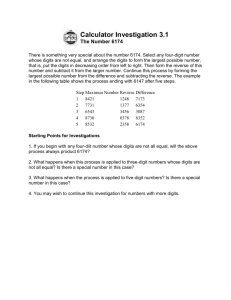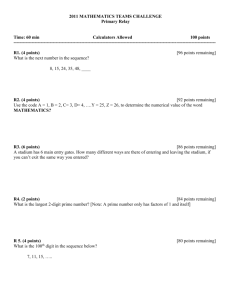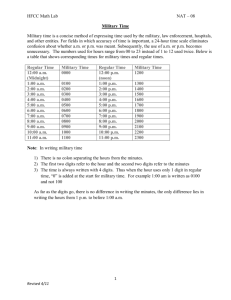d07-0 Warmup Amazing Integers
advertisement
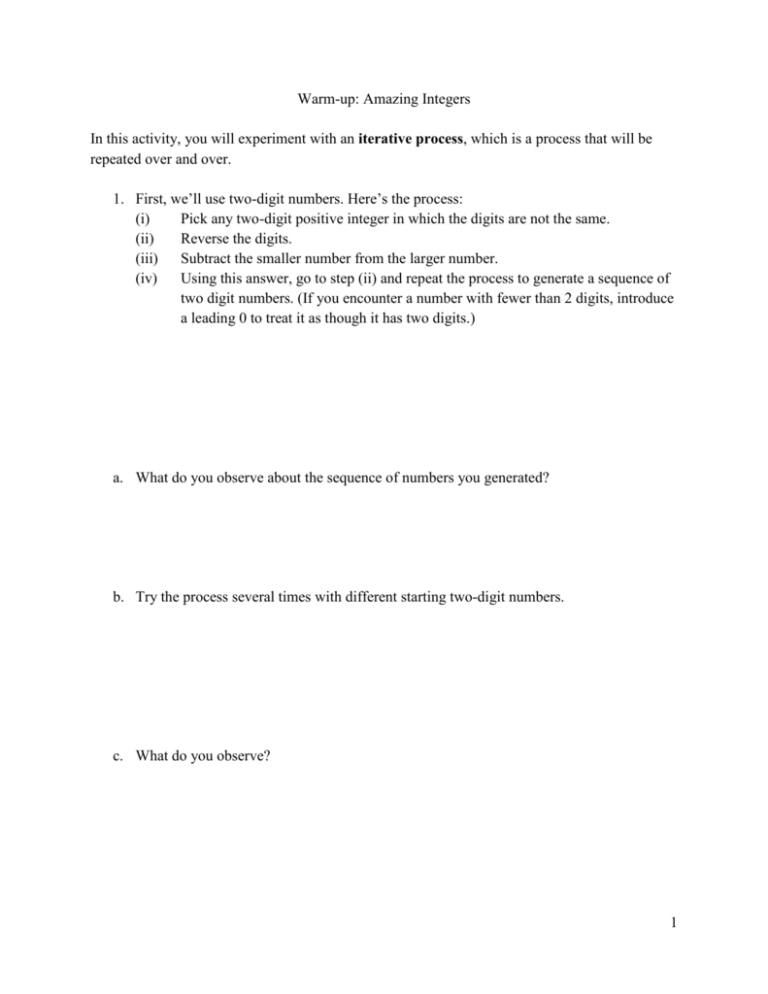
Warm-up: Amazing Integers In this activity, you will experiment with an iterative process, which is a process that will be repeated over and over. 1. First, we’ll use two-digit numbers. Here’s the process: (i) Pick any two-digit positive integer in which the digits are not the same. (ii) Reverse the digits. (iii) Subtract the smaller number from the larger number. (iv) Using this answer, go to step (ii) and repeat the process to generate a sequence of two digit numbers. (If you encounter a number with fewer than 2 digits, introduce a leading 0 to treat it as though it has two digits.) a. What do you observe about the sequence of numbers you generated? b. Try the process several times with different starting two-digit numbers. c. What do you observe? 1 2. Now we’ll adapt this process for four-digit numbers. (i) Pick any four digit positive integer whose digits are not all identical. (ii) Rearrange the string of digits to form the largest and smallest 4-digit numbers possible. (iii)Take these two numbers and subtract the smaller number from the larger. (iv) Use the number you obtain, go back to step (ii), and repeat the above process. (Remember that if any of the numbers you get have fewer than four digits, use leading zeros to form a four-digit number. a. What happens if you repeat the above process over and over (for at least 8 iterations)? b. Repeat the process again using a different starting number. What do you observe? 3. Try the process with a three-digit number (where all the digits are not the same.) What happens in this case? Illustrate your answer with at least four distinct three-digit numbers. This process is called Kaprekar’s iterative process and involves Kaprekar constants. 2
